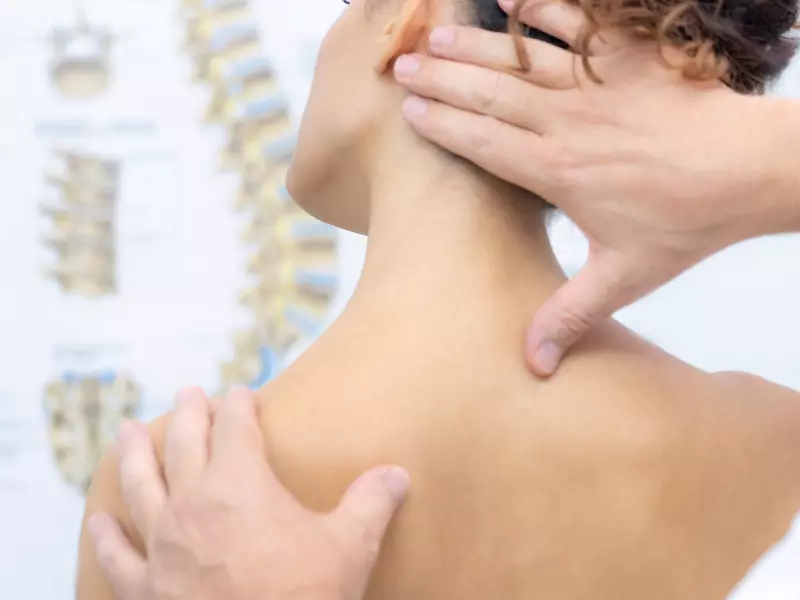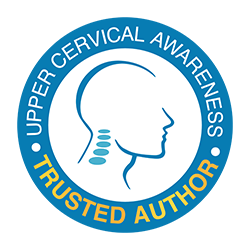
Meniere’s disease is an inner ear disorder that impedes balance and hearing, often manifested by vertigo (a spinning sensation), hearing loss, tinnitus (ringing in the ears), fullness or pressure in one or both ears; typically, only one is affected at a time, although rare instances may involve both ears.
Meniere’s disease symptoms can vary in terms of intensity and duration but typically include:
- Vertigo: Episodes of severe dizziness or spinning sensations lasting minutes to hours that can cause nausea, vomiting, and difficulty with balance. Vertigo can result in nausea, vomiting, and difficulty with walking.
- Hearing Loss: Fluctuating hearing loss typically starts in lower frequencies and worsens over time. Some individuals may also experience temporary hearing loss during or following vertigo episodes.
- Tinnitus: Tinnitus refers to any sound that rings, roars, buzzes, or hisses in one or both ears; intensity can differ depending on whom tinnitus affects.
- Aural Fullness: The sensation of pressure or fullness in one or both ears similar to having a blocked ear canal.
Meniere’s disease remains poorly understood; however, experts suspect a combination of factors, including inner ear fluid buildup, abnormalities in fluid composition, and issues with the vestibular system (responsible for balance).
Complimentary Meniere’s Disease Consultation
We’d love to meet you for a 15-20 minute session with a doctor to get your story, conduct any preliminary tests, and see if we can help you. If so, great, if not, we’ll help you find the place that can.
Diagnosing Meniere’s disease can be difficult as several symptoms can alternate in frequency and intensity. There is no one test to confirm Meniere’s, so diagnosis usually relies on evaluating a patient’s health history, symptoms, and various tests, including:
- Audiometry: A hearing test designed to assess the degree and nature of hearing loss.
- Vestibular Tests: Assess balance and eye movements to gauge the inner ear’s function.
- Imaging Studies: Magnetic resonance imaging or computed tomography scans can be performed to rule out other possible causes of symptoms.
- Medical History and Physical Exam: An intensive dialogue about symptoms, such as their frequency and duration, and a thorough ear exam may be conducted for optimal care. Typically, Meniere’s Disease is initially diagnosed by an EENT or Audiologist.
We specialize in Upper Cervical Chiropractic care at Mount Dora Family Chiropractic – the upper spinal region where the head and neck join. The top two bones in the neck are scientifically and very precisely analyzed (known as the atlas (C1) and axis (C2) vertebrae). Doctors of Upper Cervical Chiropractic understand that misalignments or subluxations in this part of the spine can interfere with normal nerve pathways, thus affecting various body systems, which may cause or contribute to various health conditions, including Meniere’s disease.
Traditional treatment for Meniere’s disease involves managing its symptoms through medications to control vertigo, reduce fluid buildup, and relieve associated symptoms. Lifestyle modifications like eating less salty food and limiting coffee and alcohol may also be recommended; surgical interventions may be considered in extreme cases.
Upper Cervical Chiropractic care, however, aims at realigning the upper cervical vertebrae to restore proper nerve function and promote overall health. This form of care, along with lifestyle modifications and support, can make a significant difference for those with Meniere’s Disease.
How Our Meniere’s Disease Care Plan Works
1. Real Answers
You have a story and we want to hear it. We want to understand you. If we feel we can help, we’ll complete a very detailed exam–unlike anything you’ve done anywhere else to get to the root of the problem.
2. Real Solutions
Once we’ve gotten to the bottom of things–the root cause–we’ll tailor-make a program of care first to stop the damage and turn things around, then continue to move your health and function in a constructive direction.
3. Real Life
At the end of the day, you want your quality of life back. Better. Stronger. Healthier. We desire to help you achieve the life that God has called you to–getting you back to your sense of purpose and joy.
How We Treat Meniere’s Disease in Mount Dora, FL
Comprehensive Consultation and Exam
The doctor and team will first do a consultation and preliminary evaluation (complimentary) to ensure you’re in the right place and that we believe we can help you. If we can, we’ll dive much deeper into your condition and how it’s affecting your life. Once we understand you clearly, we’ll thoroughly examine your spine and nervous system utilizing chiropractic, functional, and neurologic testing to find the root cause of the problem(s).

CBCT (3D Panoramic X-ray) and Motion Study X-rays
Once we’ve determined that you are a good candidate for care and can help you, we will likely need to take very specific forms of imaging to pinpoint the problem (unless you are pregnant). We want to get a good look at the curve of the spine, the alignment (or lack thereof), any degenerative changes, and contraindications to care, and ultimately find out EXACTLY what we need to do for you to get better.
Upper Cervical Chiropractic Care
Our family-oriented practice in Mount Dora provides a very specific and unique form of Chiropractic care that is precise, extremely effective, and very gentle. In fact, there is no twisting or “cracking” of your neck. Utilizing a form of care known as Blair Upper Cervical which focuses on the top two bones in the neck, where your head and neck come together, tends to yield uncommon results due to the neurological influence of this critical area of your spine. We add a supportive type of adjusting for the rest of your spine known as TRT (Torque Release Technique). TRT is a precise and effective yet gentle instrument-based technique that produces fantastic results.
When the joints of your spine are misaligned – known as a subluxation – it puts pressure on your joints and, more importantly, on your nervous system, which may cause pain and affect your global health. Your specific adjustments’ goal is to reduce the subluxations, taking pressure off your spine and nervous system so your body can self-heal the way it was created.
Custom Therapeutic Exercise Plan
Depending on your particular case, we will design a custom rehab/exercise plan (Vestibular Rehab) to help you recover quicker and attain lasting results. Your unique exercise plan aims to help restore global spinal and vestibular imbalances, address muscle weakness, increase range of motion, and improve your posture. We also aim to keep it simple—so you can do it at home in very little time. If you are a severe case, we may refer you for physical therapy aimed at a more tailored and monitored exercise rehab to complement your upper cervical chiropractic care.

Frequently Asked Questions
How do I know if I should see a chiropractor for Meniere’s Disease?
If you have unresolved dizziness, vertigo attacks, tinnitus, and fullness of the ear that hasn’t responded to other treatments or home care, getting a proper upper cervical chiropractic spinal evaluation would be prudent. Also, if you have accompanying headaches, neck pain, upper back or shoulder pain, or muscle tension, these are red flags for spinal/structural issues best addressed by a great chiropractor.
Is a massage or chiropractic better for Meniere’s?
Both are great but serve different purposes. Massage primarily focuses on the soft tissues (muscles, fascia), improving circulation and reducing stress, whereas chiropractic focuses on the neuro-structural system (the spinal joints and adjacent nerves). Because a chiropractic adjustment affects the nervous system, it will also directly affect muscle tension. Massage is a wonderful compliment to chiropractic care, but not a replacement for it.
What can I do in the meantime to relieve Meniere’s Disease symptoms?
- Reducing Stress: Stress can aggravate Meniere’s disease symptoms. Engage in relaxation techniques like deep breathing exercises, meditation, yoga, or tai chi to lower stress levels and ease symptoms.
- Follow a Low-Sodium Diet: Reducing sodium consumption may help limit fluid retention in the inner ear to help with symptoms. Aim for no more than 2,000 milligrams a day.
- Stay Hydrated: Drinking enough water may help the body maintain proper fluid levels, potentially decreasing symptoms. But excessive liquid consumption could trigger symptoms in some individuals.
- Eliminate Caffeine and Alcohol: Both substances may worsen your symptoms of vertigo. Therefore, consider cutting back or entirely forgoing these in your daily habits.
- Get Enough Sleep: Fatigue and lack of rest may contribute to increased Meniere’s disease symptoms, so ensure you set a regular sleeping pattern each night and get sufficient restful zzz’s.
- Target Triggers: Recognizing and avoiding factors that exacerbate symptoms can vary for different people but could include foods, bright lights, loud noises, or rapid head movement as potential sources.
- Use Supportive Devices: When experiencing vertigo, assistive devices like canes or walking sticks may provide stability and help avoid falls. Grab bars installed in bathrooms also ensure added safety for users.
- Implement Vestibular Rehabilitation Exercises: When recommended by healthcare providers specializing in vestibular disorders, vestibular rehabilitation exercises can help restore balance and decrease dizziness.
- Consider Dietary Supplements: Some individuals find relief from Meniere’s symptoms by taking specific dietary supplements like magnesium, Vitamin B-6, or ginger. Essential Oils such as Pure Peppermint or Citrus may also help to alleviate symptoms. It’s best to discuss with your healthcare professional before consuming.
- Locate Emotional Support: Coping with Meniere’s disease can be trying, so joining support groups or seeking therapy sessions may provide much-needed emotional assistance and coping strategies.
Please note that these suggestions may differ in effectiveness depending on the patient. It’s wise to consult a healthcare professional, such as an ear, nose, and throat specialist or audiologist, for a proper diagnosis and tailored advice for managing Meniere’s disease symptoms.
How should I sleep with Meniere’s Disease?
If you’re currently symptomatic, the best posture to sleep in is semi-recumbent (as in a recliner chair) with support under your neck. Some contoured pillows are good (some are terrible)—we recommend the Killapilla—or simply put a small, rolled-up towel under your neck. If you can lie flat in bed, put a pillow under your knees to help achieve a more neutral spinal posture. If on your side (avoid the “bad side”), it’s important to have just the right amount of pillow height so that your head is not tilted up or down, which will only irritate your neck joints and receptor nerves, possibly aggravating your symptoms.
Does a chiropractic adjustment hurt?
No, a chiropractic adjustment should not hurt. Some technique models use more force to move the vertebrae where there may be an audible “cracking or popping sound”. This is nothing to fear; it’s just gas escaping the joint. That being said, in our office, we utilize a very specialized form of care that does not involve twisting or “cracking” of your spine—it is very gentle, precise, and extremely effective at producing results. You can learn more on our website’s “Upper Cervical” page. You may also find more information at www.blairchiropractic.com
Check Out Our Location Near You
2255 Crescent St Mt Dora, FL 32757



